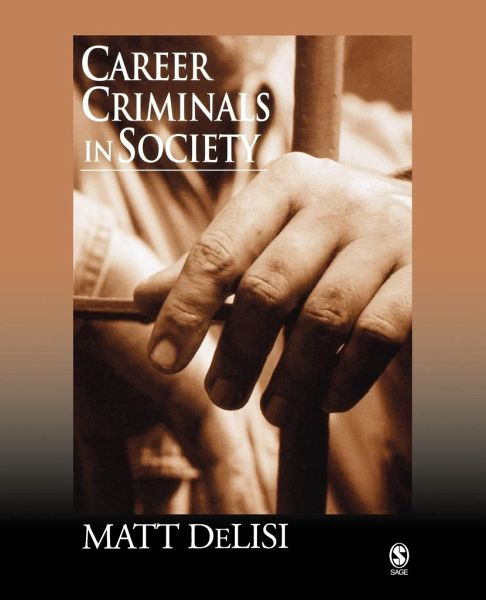
Career Criminals in Society
Versandkostenfrei!
Versandfertig in 1-2 Wochen
94,99 €
inkl. MwSt.

PAYBACK Punkte
47 °P sammeln!
More than a century of scientific research has indicated that the majority of crime that occurs in society is committed by a small percentage of the population, meaning that most criminals are repeat offenders, or "career criminals." If societies devoted considerable resources toward preventing and neutralizing career criminals, there would be dramatic reductions in crime, the fear of crime, and the assorted costs and collateral consequences of crime. Career Criminals in Society examines the small but dangerous group of repeat offenders who are most damaging to society. The book encourages rea...
More than a century of scientific research has indicated that the majority of crime that occurs in society is committed by a small percentage of the population, meaning that most criminals are repeat offenders, or "career criminals." If societies devoted considerable resources toward preventing and neutralizing career criminals, there would be dramatic reductions in crime, the fear of crime, and the assorted costs and collateral consequences of crime. Career Criminals in Society examines the small but dangerous group of repeat offenders who are most damaging to society. The book encourages readers to think critically about the causes of criminal behavior and the potential of the criminal justice system to reduce crime. Author Matt DeLisi draws upon his own practitioner experience interviewing criminal defendants to argue that career criminals can be combated only with a combination of prevention efforts and retributive criminal justice system policies. With its controversial, thought-provoking style, Career Criminals in Society is sure to advance theory and research on chronic offenders and inspire discussions on how to adequately control crime.














